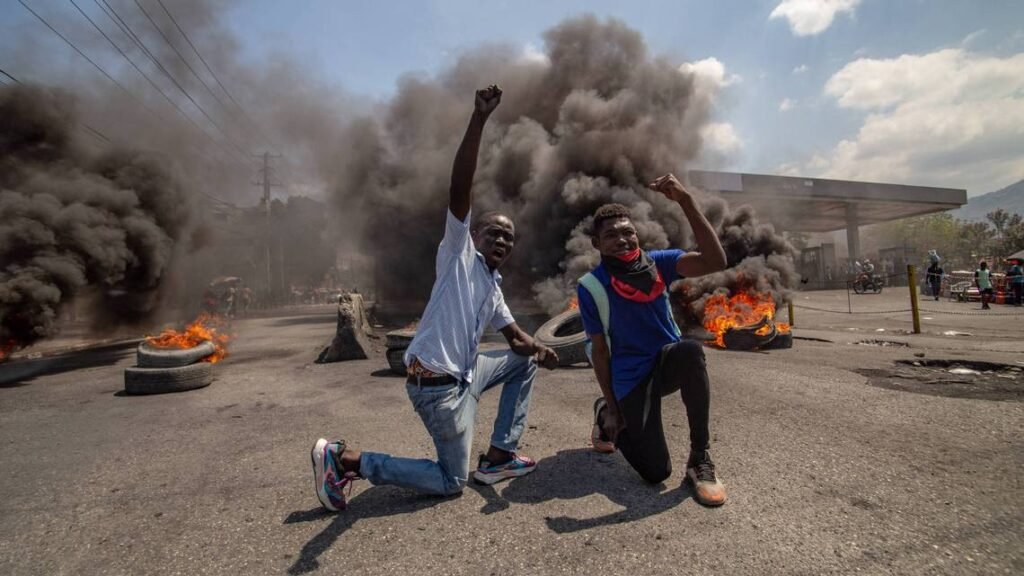Kenya has postponed the much-awaited deployment of police officers to Haiti on the advice of a team of local security officials who had travelled to assess the situation ahead of the mission.
The advance team, led by Noor Gabow, the deputy inspector general of the Administration Police Service, had travelled to the violence-stricken Caribbean nation last week to assess preparedness before the Kenya policemen are deployed to quell growing armed gang violence.
-
Sale!
Download Nairobi Law Monthly Magazine July 2024 Edition
Downloads Original price was: KShs200.00.KShs100.00Current price is: KShs100.00.
They found that the country lacks the critical equipment to allow the deployment, including armoured vehicles to move the foreign security officers and radios to facilitate communication.
The Kenya-led UN mission is yet to procure helicopters to evacuate potential casualties from Haiti, where dozens of hospitals have been destroyed or looted since armed gangs united to overthrow the government on February 29.
- US calls for swift deployment of Kenya police to Haiti
- Haiti gangs amass firepower to confront Kenyan police
- US poised to designate Kenya as major non-NATO ally
- IPOA probes alleged police shooting of protester
The first 200 Kenyan officers were to arrive in Haiti this week, but the advance team, which returns to Nairobi today, advised resolving the pending logistical issues on the ground first.
According to President William Ruto, this will delay the deployment until around mid-June.
Haitian police training
Meanwhile, Kenya has agreed to train 2,000 Haitian police officers to augment their capacity to combat the street gangs.
The Haitian officers will fly into Nairobi for training before returning to the Caribbean nation to fight gangs who now control 80 per cent of the island.
The specific date of arrival has not been listed, but the training is expected to take two weeks, and the officers will return to Haiti mid next month.
The Haitian officers will be taken through a crash course in law enforcement and combat.
US couple killed
On Friday, the US called for the swift deployment of the Kenya police, after a US missionary couple was killed in Haiti on Thursday night in Port-au-Prince, the nation’s capital.
The missionaries, alongside a Haitian cleric, were ambushed by gunmen as they left a church.
“The security situation in Haiti cannot wait,” a spokesperson for the National Security Council said on Friday, adding that Biden had pledged support on Thursday to expedite the mission.
But even as Kenya readies to deploy its forces, the government is facing both local and international opposition from people who feel the move is ill-advised.
In Nairobi, for example, city lawyer Ekuru Auko has moved to court to challenge the initial deployment of 200 officers, citing the unconstitutionality of the decision.
Haitian groups have also voiced their opposition, asking Kenya to rethink the deployment.
On Thursday, a group called Movement Unforgettable Dessalines Jean Jacques (MUDJJ) argued that Haiti’s problems should be solved internally, advising Kenya to keep off.
They argued that it was unfortunate for Kenya to handle all plans for leading a foreign military in Haiti, stating that it would likely cause more harm than good.
“Any foreign military presence on Haitian soil will be considered an act of aggression, making every Haitian life a direct responsibility of your government,” MUDJJ said in a statement.


